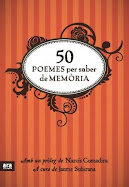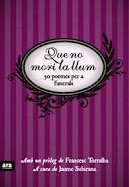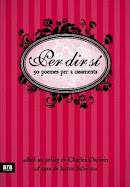LOU BONET BROWN
La primavera de 2007 l'Institut Ramon Llull va organitzar a Nova York un seguit d'activitats de presentació i promoció de la cultura catalana (en bona part concebudes per Emili Manzano, inaugurades per Josep Bargalló, coordinades per l'equip de Carles Torner). Una d'aquelles activitats va ser una lectura de poesia catalana moderna a càrrec de Laurie Anderson, Lou Reed i Patti Smith que va tenir lloc a Manhattan, al Baryshnikov Arts Center, els vespres del 23 i el 24 de març. L'enllaç amb els artistes havia estat Borja Sitjà, cap d'una de les àrees del Llull, i jo vaig tenir la sort que m'encarreguessin de preparar amb Xavier Albertí la selecció dels poemes (i de les versions) que s'hi havien de llegir. Escric "la sort" i hauria d'haver escrit el privilegi: escoltar Laurie Anderson llegint Maria Antònia Salvà i el "Manifest groc", Patti Smith interpretar "L'Elionor" de Martí i Pol o Lou Reed vacil·lar-nos dient "Al Brown" de Blai Bonet va ser una experiència que els presents a la sala, asseguts a les fosques en aquelles grades incòmodes, no oblidarem fàcilment.
El llibret de l'acte (accessible ara a Internet) contenia una breu presentació titulada "El tallapapers" que després vaig perdre en un dels cataclismes informàtics que ja formen part de les nostres vides, i que ara he pogut repescar. La transcric aquí en anglès, tal com va ser publicada, pensant en lectors que per primera vegada eren (o siguin) a punt d'escoltar Carner, Espriu, Ferrater o Marçal en la llengua de Yeats i Frost, de Dickinson i Thomas.
THE PAPER KNIFE
For those of us who love literature, the world can be contained in a study with a few shelves packed with books, a comfortable armchair, a desk to write on and a couple of windows through which the daylight filters in. Our world, the study, is full of sounds and smells and colors and objects, full of stimuli, each with its own story and relevance. But now let’s focus on one of them, just one, as Gabriel Ferrater, the poet, does:
Among the objects of the world, among the few
objects I have clung to, there is a paperknife:
a short ivory blade,
naked to my hand, which turns brown or pale
according to the light of days and places.
"El lector" (The Reader)
We are here today to propose to you that, among all the objects that fill the study of world literature, you let your eyes light for a few moments on this paper knife. Pick it up in your fingers; weigh it in your hand. It is not the largest object in the room, nor perhaps the first to catch your eye, nor perhaps the most valuable one, but its blade bears the memory of the gentle weight of centuries: the first treatise on verse in a Romance language; the first essays written in Europe in a language other than Latin by Blessed Ramon Llull, one of “God’s fools” who used words to try to convert infidels; the memory of the first translation in verse of the Divine Comedy; of Pope Alexander VI’s letters to his daughter Lucretia; of Tirant lo Blanc, the “finest novel in the world”, according to Miguel de Cervantes; of Catalan folk songs compiled in the Romantic period; of the first translation of Nietzsche in Spain; of Salvador Dalí’s postcards to his friends; of the many pages written, first from the trenches of the Spanish Civil War, and then later from exile. It is old, this paper knife. It is small, and sometimes gets lost among the great literatures stacked up on the desk in the study, or buried under canonical tomes but, somehow, it always finds its way back to our hand, settles in, and once again is of use to us. It is shaped like a knife, but what it tears open and pours into our hands are words: words in a language which, after eight long centuries, speaks of the world and all it contains, whether close up or far away. In his prologue to the poems of Gabriel Ferrater, Seamus Heaney suggests – in words applicable to Catalan poetry as a whole – that it is a poetry “in love with its own materiality but not altogether fulfilled by it. It is poetry convinced of its historical contingency but still insistent on its subjective rights”.
Let’s listen, just for a moment, to the paper knife. It will speak to us of painters and writers like Narcís Comadira, Perejaume and Miquel Barceló; of avant-garde pastry chefs like J.V. Foix or radicals like Joan Brossa; of Hellenists like Carles Riba; of contemporary troubadours like Enric Casasses; of exiled diplomats like Josep Carner; of unabashed Valencians like Vicent Andrés Estellés and visionary poets from the Balearic Islands like Blai Bonet. It speaks to us in the name of the prolific procession of Catalan poets over the last hundred years, of the multitude of Catalan writers today, of the stones on the peaks of the Pyrenees and the crystalline waters in the coves of Menorca; it speaks to us in the name of the sinuous shapes of Antoni Gaudí’s works and the vivid red in the paintings of Joan Miró; in the name of the ripening fruit on the trees in the Segrià region and of the first baby tooth lost by the young son of the latest Ecuadorian immigrant to arrive in Barcelona. The paper knife, all this poetry, is now in our hands, waiting to be heard. It beats in our ears with the ancient blood of verse. We don’t know exactly what it is trying to tell us, but we do know that it has something to say. Then we will turn back to the light of the days and the places and the other objects in the study, now with a small, yet palpable, new imprint of literature in the palm of our hand. Of Catalan literature, of literature belonging to all.
Jaume Subirana
(del programa de mà de Laurie Anderson, Lou Reed and Patti Smith reading Catalan poetry, Institut Ramon Llull, 2007)








































0 comentaris:
Publica un comentari a l'entrada
Gràcies per la vostra opinió
Nota: Només un membre d'aquest blog pot publicar entrades.